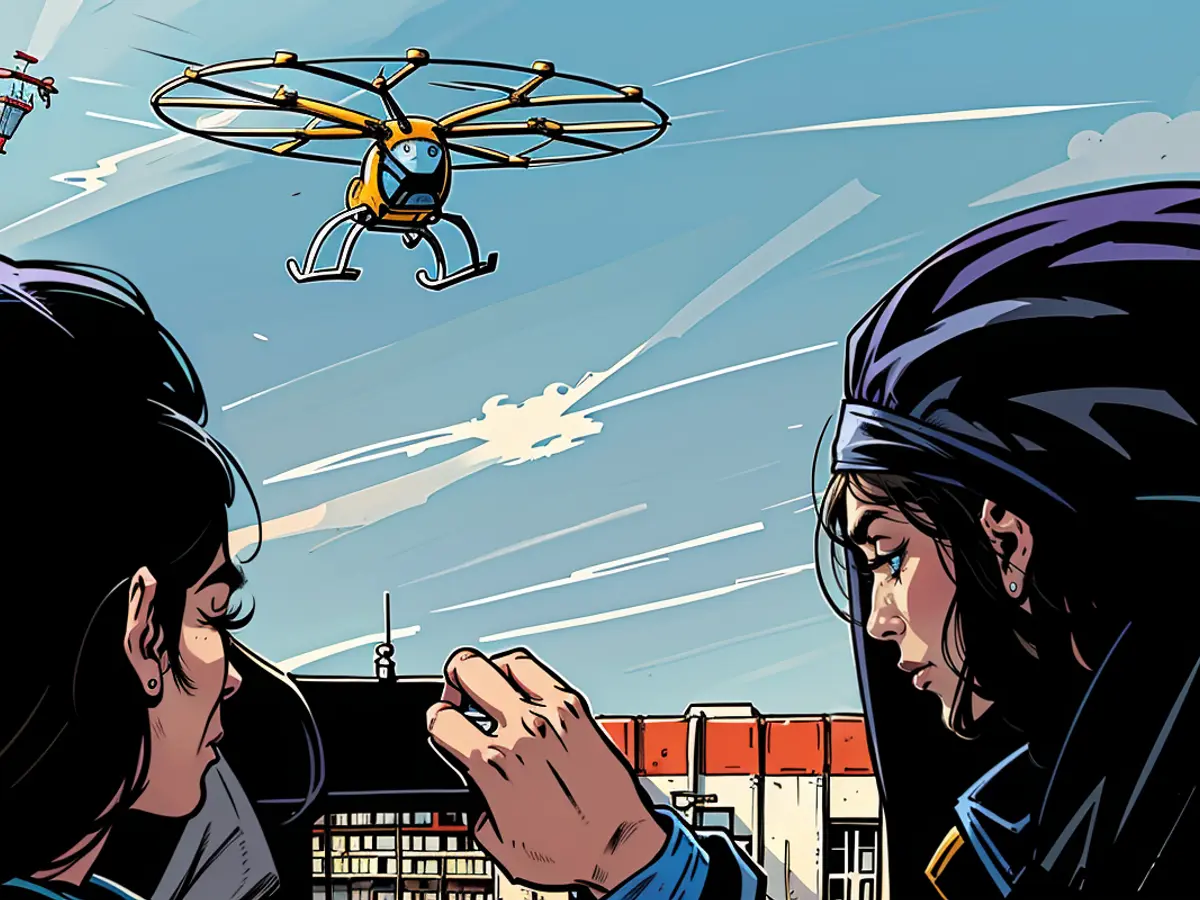- Volocopter is allowed to take off during the Olympics
Just ahead of the end of the Olympic Games, flight taxi manufacturer Volocopter has finally received a long-awaited flight permit for Paris. Flights with the electric aircraft, which take off and land vertically, are planned for this Thursday, among other days, as announced by the company based in Bruchsal, Germany.
At the beginning of the major sporting event, it was uncertain whether Volocopter and the French airport operator Groupe ADP would be able to implement their plans. The decision rested with the French civil aviation authority DGAC and the European Union's aviation safety agency EASA.
Initially, Volocopter and Groupe ADP had planned to launch the world's first commercial flight taxi service during the Olympic Games. However, an EASA type certification for this purpose is still pending. EASA did not respond to a request for comment.
Last year, the partners announced that flight taxi operations would commence in Paris on three connecting and two tourist routes. Five landing sites, or 'vertiports', were planned, including one on a pontoon on the Seine. The Volocity model, with a large ring and rotors on top, can accommodate a pilot and one other person. The flight taxis were intended to fly at an altitude of less than 500 meters, making them inaudible from the ground in urban environments.
Recently, the French Council of State rejected two appeals against a temporary take-off and landing site for flight taxis in the center of Paris. The city of Paris and several organizations had questioned the legality of the operation.
Volocopter, like other companies, aims to revolutionize air traffic, with the goal of alleviating city traffic jams and connecting other forms of public transportation. Alongside Paris, cities such as Rome and Osaka are on the list of those where Volocopter plans to start operations first - but not in Germany, as German cities are not as densely populated and have autonomous public transport networks.
In Germany, Volocopter is working with ADAC air rescue to test the use of the aircraft for medical and rescue purposes.
Criticism has been leveled at the high expected costs of the flights. The cost of building the two-seater, which weighs more than 500 kilograms, is unknown.
There have been debates about state support in the millions. After a rejection from Baden-Württemberg, a move of the headquarters to Bavaria was even considered, as the Free State initially showed more openness. However, Bavaria ultimately decided against it, and Volocopter received the necessary funds from investors. The company previously stated that it employs around 650 people in Bruchsal alone.
The Commission, presumably representing either the European Union's aviation safety agency EASA or another relevant body, has been instrumental in the process of granting or withholding the necessary permits for Volocopter's flight taxi operations in Paris. Despite initial uncertainly, the long-awaited flight permit was recently granted to Volocopter, clearing the way for their planned flights in Paris.








